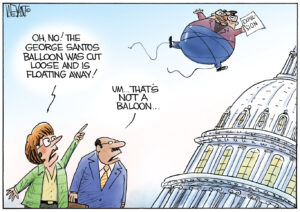Postal Service Seeks to Stop Delivery to Your Door
Pretty soon, you may have to walk all the way to your curb or a neighborhood "cluster box" to pick up the latest unsolicited coupons.
Pretty soon, you may have to walk all the way to your curb or a neighborhood “cluster box” to pick up the latest unsolicited coupons.
The U.S. Postal Service is reportedly phasing out door-to-door delivery in favor of much cheaper curbside and centralized alternatives. Reuters has the expense breakdown behind the change:
Door-to-door delivery costs the Postal Service about $353 per address each year.
Curbside delivery costs $224, and cluster boxes cost $160 per address. With cluster boxes, mailboxes for individual addresses are grouped together at a central neighborhood location.
Given the savings, it seems an obvious step, and even a healthy one considering the obesity levels in this sedentary nation.
The USPS lost $16 billion last year and is desperate to save where it can. Although it’s true that electronic communications and private services such as FedEx have put a damper on traditional mail delivery, Congress is the primary reason letter carriers might be out of a job. In 2006, lawmakers forced the Postal Service to begin pre-funding its workers’ retirement up to 75 years in advance. The USPS has struggled to pay its bills ever since.
It should be noted that an earlier plan to save money by phasing out Saturday delivery was scrapped after a public backlash, and there’s no guarantee that this cost-saving measure will be implemented exactly as it has been reported this week.
— Posted by Peter Z. Scheer
Your support matters…Independent journalism is under threat and overshadowed by heavily funded mainstream media.
You can help level the playing field. Become a member.
Your tax-deductible contribution keeps us digging beneath the headlines to give you thought-provoking, investigative reporting and analysis that unearths what's really happening- without compromise.
Give today to support our courageous, independent journalists.






You need to be a supporter to comment.
There are currently no responses to this article.
Be the first to respond.